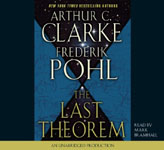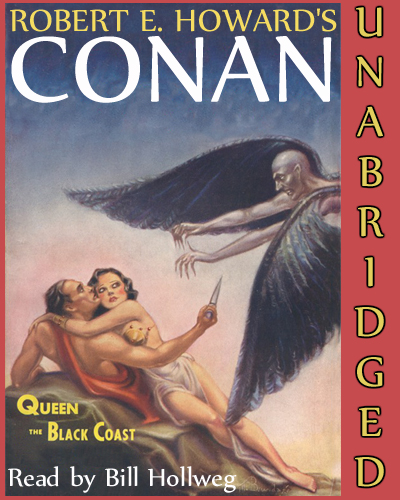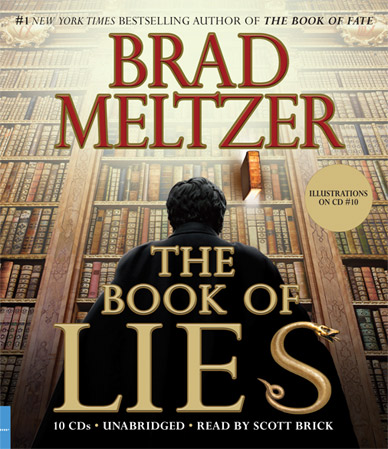
 The Greatest Science Fiction Stories Of The 20th Century
The Greatest Science Fiction Stories Of The 20th Century
By various; Read by various
4 Cassettes – 6 Hours [Unabridged]
Publisher: Dove Audio
Published: 1998
ISBN: 0787116807
Themes: / Science Fiction / Magical Realism / Aliens / Time Travel / Parallel Worlds / Space Travel / Mutation / Nuclear Winter /
What would a long time SF fan consider a collection called The Greatest Science Fiction Stories Of The 20th Century when none of the stories would make his top ten list, and some aren’t even SF? In this case, I consider it a very good collection of stories. If anything, this seems a collection of well-read and written, but randomly chosen, speculative fiction stories.
Clearly intended to present a wide variety of “Science Fiction,” this audio-anthology has neither theme nor consistency but it doesn’t need them. The stories, with only two exceptions, are quite entertaining. They are all extremely well read, my quibble with a poor attempt at an accent notwithstanding, ranging from Harlan Ellison’s wonderfully passionate reading of his story to Nana Visitor’s aesthetically perfect interpretation of “The Ones Who Walk Away from Omelas.”
Each story is briefly commented on below.
“Jeffty Is Five”
By Harlan Ellison; Read by Harlan Ellison
Reality is distorted around a boy who doesn’t age. This is Magical Realism, not SF, but an amazing story nonetheless. Ellison’s response to the bitter cynicism of modernity will tear at the core of your soul unless A) you’re very young or B) you don’t have a soul. The best story in the collection.
“Twilight”
By John W. Campbell; Read by Richard McGonagle
A good early SF story but not quite great. It feels a bit to much like Wells’ The Time Machine, but it entertaining enough. A retelling of a time traveler’s visit to the twilight of humanity.
“The Ones Who Walk Away Fom Omelas”
By Ursula K. Le Guin; Read by Nana Visitor
Virtually everyone knows this Fantasy, again not SF, story. It has all the strengths and weakness of Le Guin’s writing, amazing authorial voice and great storytelling, but a strong tendency to be overly didactic to the point of sanctimoniousness. Still as with most of her stories, the strengths far outweigh the weaknesses.
“Bears Discover Fire”
By Terry Bisson; Read by Arte Johnson
Bears start using fire in an otherwise normal Kentucky. This Magical Realism, not an SF. This story was the only one that bored me. It also had my only, relatively minor, reading complaint. The reader’s Kentucky accent is a bit off and sounds a bit condescending.
“The Crystal Spheres”
By David Brin; Read by Alexander Siddig
A very interesting, though highly implausible, story about a universe in which all stars are encircled by invisible, impenetrable, crystal spheres.
“That Only a Mother”
By Judith Merril; Read by Terry Farrell
Due to radiation poisoning, a baby is born mentally gifted but physically impaired. A disturbing, unpleasant story that is only marginally SF.
“Allamagoosa”
By Eric Frank Russell; Read by James A. Watson
Wonderful over-the-top humor. This story of a spaceship facing an inspection while missing an offog, an item no one knows what is, is a gem.
“Tangents”
By Greg Bear; Read by Melissa Manchester.
A boy can see into the the fourth physical dimension and a scientist helps him play music for the beings there. Interesting enough, but forgettable.
“The Nine Billion Names of God”
By Arthur C. Clarke; Read by Alexander Siddig
Tibetan monks have a computer print out all the names possible names of God with the intent of fulfilling the purpose of creation. Good enough but not even Clarke’s best short story.
“Huddling Place”
By Clifford D. Simak; Read by David Ackroyd
In a future with robots and space travel agoraphobia has become a serious threat. This story would have been just acceptable filler except for the fact that in this story from 1944, Simak predicts the internet, though he describes it in terms of a television with knobs.
“Why I Left Harry’s All-Night Diner”
By Lawrence Watt Evans; Read by Wil Wheaton
A fun, interesting take on the the idea of parallel universes. Certainly an enjoyable story.
“Fermi And Frost”
By Frederik Pohl; Read by Denise Crosby
Icelanders face the prospects of nuclear winter in the post-apocalyptic tale. A good downbeat story to balance some of the lighthearted stories.
Conclusion: This is a very good anthology. It definitely isn’t a collection of the best stories, but it may be the best collection of stories available. Highly recommended.
I started reviewing this collection on the expectation that it was out of print and I would have to recommend Amazon or eBay as a source of a used cassette copy. So imagine my surprise when a mere day after finishing it, I hear an Audible.com ad for it on Pseudopod. So, it is easily available for those interested.
Posted by David Tackett

 Pellucidar (2nd in the Pellucidar series)
Pellucidar (2nd in the Pellucidar series)



 On the 22nd August 2008
On the 22nd August 2008 
